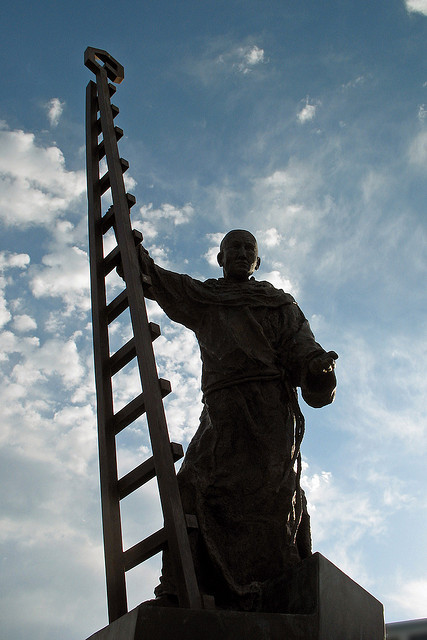A Rare Commodity
You need to talk with Larry; he is a man of humility and great wisdom. These were the words my Pastor spoke to me after asking him, “Who would be a good person to seek out for mentorship during my time in seminary?” To be honest, his words surprised me. I’m not quite sure what I expected, but I didn’t expect a non-staff person by the name of Larry. Regardless of my issue with the name Larry, over the next four years I was able to watch and be cared for by an incredible model of humility.
A few days ago a student stopped me after class and asked me, “What does it mean to be humble?” Wow, great question. I began to think about a modern day example I could share with my student. My mind immediately went to Larry. I began to tell my student stories about Larry. See, Larry was one of “those guys”, he simply embodied wisdom and humility. The way he conducted himself, his gentle manner, his ability to listen, and his simple presence always carried weight. When you were around him, you felt as if you were with a holy man.

One day Larry shared with me his story. He was very clear to point out how God used the simple things of life to shape his soul. No flash, no lofty ministry positions, no seminary, just simple life to refine his soul. He shared about;
- Getting married
- Having kids
- Learning how to discipline kids
- Marital struggles
- Loss of parents
- Loss of job and finances
- Releasing children to adulthood
- And significant times of isolation
To Larry, life was the ultimate tool for producing humility.
This past week while reading Isolation: A Place of Transformation in the Life of A Leader by Shelley Trebesch a was struck by the inward transformation which takes place before and after isolation. Primarily, a movement from performance orientation to freedom in humility. And to be frank, no one in my life has ever demonstrated this better then Larry.
In fact, the very meaning of the word humility has its root in the Latin humus, meaning “of the earth”. You could define the term as “staying grounded.” During our time, Larry shared with me a key model of humility from church history that became a guide for his formation. It was called St. Benedict’s Ladder of Humility.
Benedict who lived in the 16th century has provided us with some great wisdom in the area of staying grounded. Well known for his love of God and care for others, Benedict had at his core the idea of staying grounded through the pursuit of humility. He created the following ladder to act as a guide to help serve as we pursue transformation.
St. Benedict’s Ladder of Humility
Step 8 – Transformed into the Love of God
Step 7 – Purposeful to speak less
Step 6 – Deeply aware of being chief of all sinners
Step 5 – Radical honesty to Others about our weaknesses
Step 4 – Patience to accept the difficulty of others
Step 3 – Willing to subject ourselves to direction of others
Step 2 – Busy doing God’s Will
Step 1 – Fearful of God and Mindfulness of Him

Simple Questions
After Larry shared the previous ladder with me, he would simply ask the following questions. (Every time we got together, he asked the exact same questions):
- How are you doing in your journey toward humility?
- Where on the ladder would you currently place yourself?
- What practices or people would you need to invite into your life to continue on the journey?
- What would you need to eliminate to continue on the journey?
I remember the last words Larry spoke with me. He said, “Rick, remember, humility is a rare commodity. Tend to your soul, your wife, your family, and don’t miss out on the simple things of life.”
I have come to learn that Larry and humility are both rare commodities.
Who is the Larry in your life – a loving voice continually encouraging you to stay grounded? How would you respond to Larry’s questions? Have you embraced isolation as a formative practice, or have you tried to escape it’s grip?
Leave a Reply
You must be logged in to post a comment.